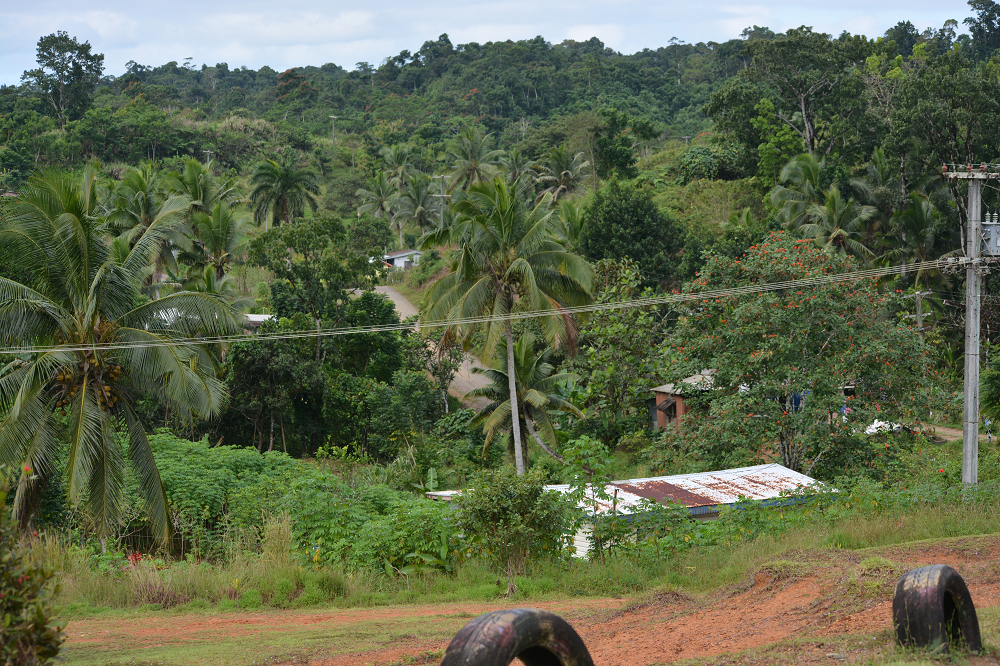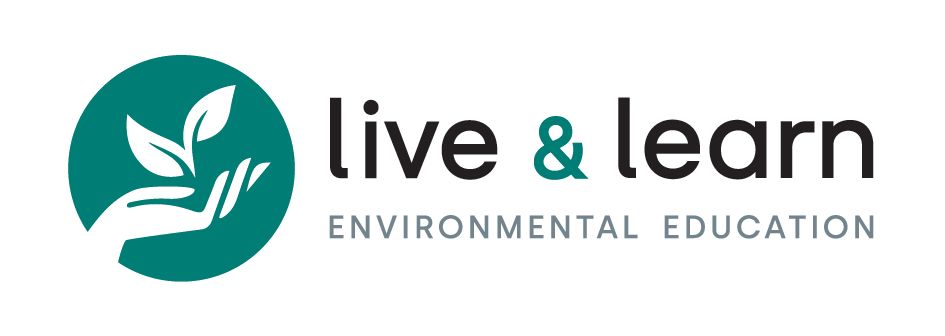A Good Supply of Water is Good Development
How a Fijian community is addressing issues of water scarcity.

“If I had to choose between electricity and water, I would choose water. Life has been hard since I moved to Lomaivuna in 1997 because there is no water.”


75-year-old Vasemaca Kalokalo resides in Lomaivuna, located in the interior of Naitasiri province in the Fiji Islands. She and others in her community lose hours each day walking or catching the bus to fetch clean water for their daily tasks or tending to family members who have fallen ill due to water contamination and poor sanitation.
“Every day I have to fetch water for cooking, bathing, washing, cleaning, and for my plantation. Because we don’t have a flush toilet, I also have to get water for the toilet.”
Vasemaca has four 20-liter drums and a 200-liter drum to fill for the family’s water needs. Water for drinking and cooking is taken from an outside drum that stores rainwater.
She considers herself blessed that just a stone’s throw away from her home is a creek and she doesn’t have to walk far to fetch water for washing, cleaning and for the toilet. However, this same creek is used by everyone in Lomaivuna for bathing and cleaning, and also by farmers to wash their crops and animals in the area for drinking.
Her day starts off very early in the morning preparing breakfast for her family of five.
“Every day I wake up, I pray, and I make breakfast. When my daughter and her children leave for school and work, I clean up the house, fold the bedding and I head off to the creek. When there is no rainwater, I have a big pot to soak the clothes, take the washing detergent and do my washing,” said Vasemaca.
Quite often Lomaivuna communities experience periods of no rain. When this happens, Vasemaca travels to Navolau village, 40 to 50 minutes away, to fill her water drums. This is her normal.
Vasemaca added “This has been my life since 1997. Ask anyone here in Lomaivuna, they will tell you living in Lomaivuna is hard. Every day we need to think of how to get water and what to get water for.”
Stopping to catch her breath as she goes about her chores, Vasemaca added the daily task of fetching unsafe water has taken a toll on her body and her grandchildren who suffer from skin diseases.



A Good Supply of Water is Good Development
Vasemaca was elated with the news of assistance that came from the Small Grants Initiative (SGI), a funding mechanism within the United Nations Development Programme (UNDP) through the Governance for Resilient Development in the Pacific (Gov4Res) Project. The assistance went towards addressing the ongoing water and health woes in the Lomaivuna community.

This assistance included the construction of tank stands, procurement and installation of water tanks, water filter systems and the construction of gutters and household reticulation systems, with a focus on ensuring the initiative considers climate change and disaster risks and is gender and socially inclusive.
The project was implemented in partnership between the UNDP, Live and Learn Fiji the Government of Fiji Ministry of Rural and Maritime Development and Disaster Management (MRMDDM), and the communities of Lomaivuna and Calia under the Rainwater Harvesting Systems project.
10 households and over 100 people benefitted from the water management and demonstration project in Lomaivuna, Sector 5 Settlement. This included 33 women and 45 children and youth under the age of 35. The Rainwater Harvesting Systems project was also implemented in Calia Settlement in Naitasiri and Navunidakua Settlement in Namosi. In total, 20 households, with over 274 beneficiaries including one person living with a disability benefitted from the UNDP SGI initiative.

Water Safety Plan training was conducted for the 10 households of Lomaivuna Sector 5. The training involved participants learning concepts of Water, Sanitation and Hygiene, identification of risks to their water system and ways to mitigate them. A water committee was formed and a water safety plan for the community was developed. Photo credit: Live and Learn, Fiji
Water Safety Plan training was conducted for the 10 households of Lomaivuna Sector 5. The training involved participants learning concepts of Water, Sanitation and Hygiene, identification of risks to their water system and ways to mitigate them. A water committee was formed and a water safety plan for the community was developed. Photo credit: Live and Learn, Fiji
Live and Learn Programs Director Pacific, Doris Susau, noted that the area was known for a significant number of health cases related to water-borne diseases including typhoid, diarrhea and skin diseases.
Ms Susau added that “collaboration and partnership between the UNDP, MRMDDM and the community has enabled us to offer a solution to the struggles Lomaivuna has faced over the years, with increasing numbers suffering from water-borne and skin diseases. This will be a welcome relief to women and children who are often tasked to fetch water and to prepare meals for the family.”
“Community consultation is a vital process in all project phases as it ensures that all members of the community are aware of the activities being implemented. The communities are also taking ownership of the project by providing the sand and gravel, and constructing the base, guttering and shelter,” said Ms Susau.
Having a clean and reliable water source is important for communities to enable women, children, and people with disabilities to enjoy life.

Seleti Tavo helps wife Baseva Maravulevu with lunch preparations. Seleti daily task is to collect water for their household needs.
Seleti Tavo helps wife Baseva Maravulevu with lunch preparations. Seleti daily task is to collect water for their household needs.
Chairman of the Lomaivuna Community Association, Sakiusa Duwai, a resident of Lomaivuna for 20 years and a retired teacher for the Lomaivuna school stated, “Good development is good water supply. There is a great need for water in the schools and in the community. Development in the school is altered because there is not enough good safe water supply.”
“In ten years time I would like to see a prosperous and healthy farming community with proper water supply, especially for the schools, because this is where all the communities from the sectors come and get their education.”

Live and Learn visitation to the community to gather baseline information before the implementation of the project. Gathering data from the Chairman of the Lomaivuna Community Association, Sakiusa Duwai. Photo Credit: Live and Learn, Fiji.
Live and Learn visitation to the community to gather baseline information before the implementation of the project. Gathering data from the Chairman of the Lomaivuna Community Association, Sakiusa Duwai. Photo Credit: Live and Learn, Fiji.
Duwai’s family of four join Vasemaca and family and others in Lomaivuna at the creek. “That creek is where we all go too. We take our 75-liter drums to fill water for washing cleaning and bathing.”

Why Risk-Informing Projects Matter?
It is noticeable driving through Naitasiri that access to clean water and sanitation is a shared problem. The drums, buckets, and containers lined up outside people’s homes is an indication there is still work that needs to be done to achieve the UN Sustainable Development Goals (SDGs), including SDG Goals #1 No Poverty, #3 Good Health and Well-Being, #4 Quality Education, #5 Gender Equality, #6 Clean Water and Sanitation and #17 Partnership for Goals. This requires an increase in investment into improving and establishing water infrastructure and availability, access to proper sanitation facilities and enhanced awareness on improved hygiene.

With only eight years remaining to achieve the SDGs, there is a heightened response to ensure water and sanitation concerns in Lomaivuna are addressed through the active participation of women, children, people with disabilities and the elderly. Involvement of all groups in risk-informing project activities ensures the needs of all groups are heard and addressed, potential threats to the projects success and sustainability are identified and mitigated.

Vasemaca participating in a group discussion led by the advisory counselor in which the participants mapped out the community, including where tanks were located and the location of secondary water sources. Photo credit: Live and Learn, Fiji.
Vasemaca participating in a group discussion led by the advisory counselor in which the participants mapped out the community, including where tanks were located and the location of secondary water sources. Photo credit: Live and Learn, Fiji.
“Prior to the development of this concept of risk-informed development component, the way we implemented projects did not fully consider risks to the project and risks from the implementation of activities. For us, it was just a matter of filling up a paper in the project proposal matrix. These were generic responses, a blanket response. Going to the communities and hearing their stories and including risks and mitigating measures in the proposals was new for us,” said Ms. Susau.
Ms Susau added community consultation was important as they were able to identify risks that the project team would not have known or considered.

After a field visit to the community, participants were tasked to identify risks from and to the roof, gutter, tanks and then to the distribution pipes. Photo credit: Live and Learn, Fiji
After a field visit to the community, participants were tasked to identify risks from and to the roof, gutter, tanks and then to the distribution pipes. Photo credit: Live and Learn, Fiji
“Knowing these risks ensures we identify mitigation measures to ensure the project is not affected in its implementation, or the intervention is not derailed or damaged in the future due to unforeseen factors that were not considered initially.”
“I realized the connection of risk-informed projects, for the sustainability of the projects and to protect the lives of the community members. Risk-informing activities and projects is important. The extra cost now will save us more as we will not have to come back to repair and maintain projects in the future."

"As Pacific communities face increasing challenges associated with climate change and more regular and damaging weather events, there is still significant work to be undertaken to achieve good development outcomes. Live and Learn Fiji and the Fiji Government through MRMDDM are demonstrating how to achieve better results through applying a risk-informed approach to all their development activities."

The UNDP Governance for Resilient Development in the Pacific (Gov4Res) project, SGI Initiative
The Small Grants Initiative (SGI) focuses on providing support towards strengthening resilience in five thematic areas, agriculture and food security; community water resource management, public- health and sanitation, community energy and small- scale infrastructure. In total, 11 risk-informed projects are supported by UNDP Gov4Res SGI in Fiji, in collaboration with Habitat for Humanity, Live and Learn Fiji, FRIEND, Adventist Development and Relief Agency (ADRA) Fiji, Natewa Bay Village Committee, House of Sarah, Rainbow Pride Foundation and Smart Farms Fiji.
The SGI has 49 projects in seven Pacific Island Countries: Tonga, Vanuatu, Solomon Islands, Kiribati, Republic of Marshall Islands, Tuvalu and Fiji. Launched in August 2021, SGI is geared towards providing opportunities for communities and development partners to understand and apply risk-informed practices to community projects. The primary purpose of the Gov4Res SGI is to support and fund resilient community development projects that have tangible outcomes of high development impact and aligned to government priorities; and are demonstration sites for the broader Gov4Res activities implemented with national governments.
The SGI is implemented with funding support from the Korea International Cooperation Agency (KOICA), the Australian Department of Foreign Affairs and Trade (DFAT), the New Zealand’s Ministry of Foreign Affairs and Trade (MFAT), the Swedish International Development Cooperation Agency (Sida). and the United Kingdom Foreign Commonwealth and Development Office. The Initiative provides technical support and grants of up to USD30,000 to Pacific based Non-Governmental Organizations (NGOs), Civil Society Organizations (CSOs) and Community-Based Organizations (CBOs).
Contact Us to find out more about other SGI projects.
Email: gov4res.pacific@undp.org
Phone: +679 331 2500
Website: Gov4Res (undp.org)



